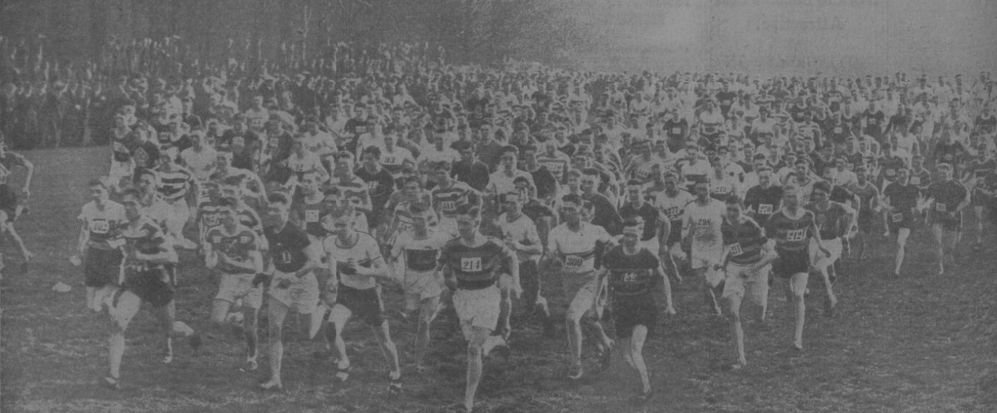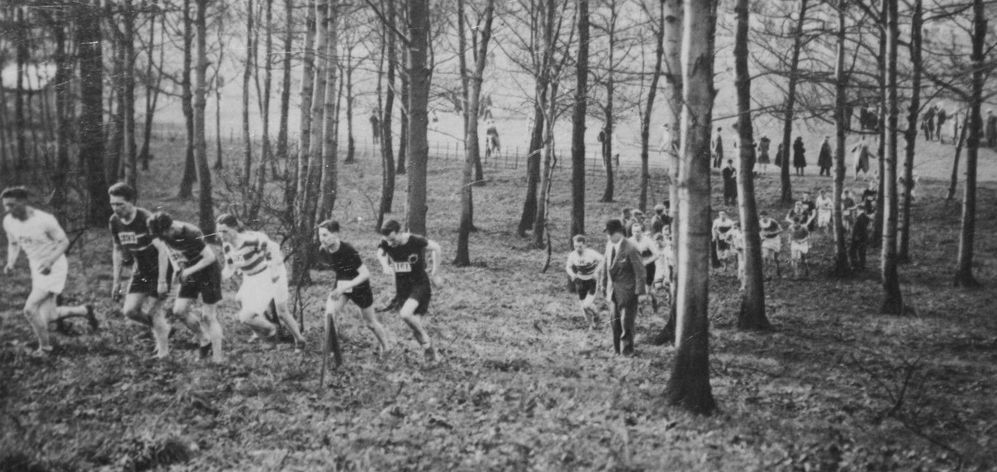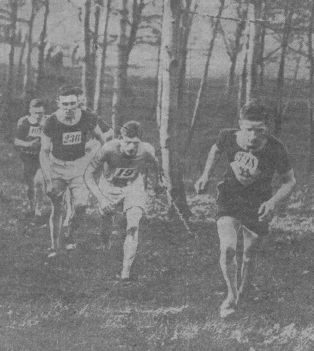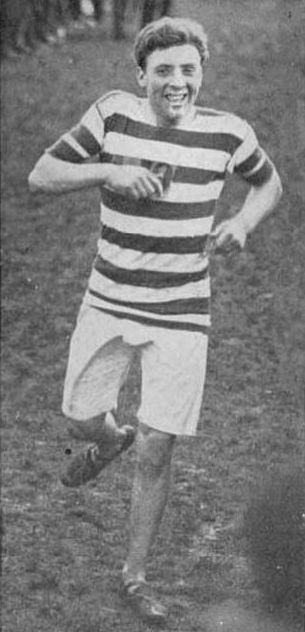Graves Park on Saturday 08/03/1930 (Senior Men)

ENGLAND'S NEW CROSS-COUNTRY CHAMPION.
HOWARD'S TRIUMPH.
BIRCHFIELD HARRIERS MAKE HISTORY FIFTY YEARS CELEBRATION.
HARPER'S NARROW DEFEAT:
The race for the National brought about the usual number of surprises in the individual class and, in a modified degree, in the team contest. Better weather conditions could not have prevailed than on Saturday, when at Graves Park, on the outskirts of Sheffield, the 49th championship was held, the first race being held in 1877 at Roehampton.
The genuine hardy cross-country runner would say the going was excellent The track lay over varying classes of grass land, and it was not always of a smooth character. There is no ideal course from any individual's point of view, but, to my mind, that at Graves Park, with all its undulating land, comes as near to the ideal as any I have seen for at least 20 years.
The proceedings opened with a youths' three miles team race, which attracted a large entry, and gave Bury A.C. one more honour to place in their rapidly growing sheaf. The individual honour went to a useful runner, F. Schofield, of Longwood, who was easily master of all his opponents.

Through the woods
The entry for this year's National may not be a record the individual class, nor perhaps in the team section, but, if the rule not been altered relative to individual starters surely a record would have been set up. It was delightful scene when the huge field of 334 men started off. They traversed a short lap of one mile before going out into the country, where the lap three miles had to be covered three times.
ANXIETY FOR LEAD.
There was the usual anxiety on the part those runners with pretensions to the highest honour to get into the lead or the front rank early as possible. Last year, when Harper won at Beaconsfield, he took the lead at the start and was never headed. This year it took well over a mile before the runners separated, and even at four miles (23min. 25sec.) there would be 30 runners within as many yards.
MAKING THE PACE.
In the earliest stage the Northern champion. J. A. Bury, and G. W. Bailey led: they forced the pace, and it did them no good, although Bailey did finish in the eleventh position. At the four miles Beman (Birchfield) led from W. B. Howard, the ultimate winner, with J. T. Holden (Tipton), E. Harper (Hallamshire), J. W. Winfield (Derby), then Bailey (Salford), Broadley (Hampstead), and Potts (Saltwell).
From the distance the long trail commenced, and it was undoubtedly the rises and falls in the land that was the undoing of the speedy men who lacked stamina; the men who race on roads. The first 20 men at the half-way point belonged to such a variety clubs that it was hopeless trying to find which club had team honours in their keeping. In fact, and it is unusual, there never was a period in the race when it could be said the winning club had been found.
That circumstance made for greater excitement than ever, and all the time there was a terrific struggle going for the individual honour. Howard was always well placed, and Beman, after forcing him, got the lead. Broadley, as comfortable as any other of the next dozen, had Harper to deal with, and the little champion was striding out at his usual steady gait. Holder was then forward with Potter, then come Fisher and T. Evenson. I must comment on the excellent running, the nice judgment of speed, and his own powers of this youthful Salford Harrier Tom Evenson. He may have conserved his finishing powers a trifle too long, but who can blame him. The most consistent progressive athlete the North has had since Harper entered the field.

First after seven miles, second at the finish, Ernest Harper - 19 (Hallamshire Harriers)
AFTER SEVEN MILES.
Just over seven miles (40min. 22sec.) Howard leading Broadley by ten yards. Beman closely trailed by Harper, then Holden, Potter, Fisher, Evenson, Norcross, and Bailey. Country for the last time, all in the first dozen constantly changing places except Howard and the promise of a titanic last mile. Compare these places with those at the finish and they disclose what valiant efforts had been put forward in the last 15 minutes or so. Men who had not been nearer than the second dozen had come into the picture, Kay, Eckersley, Light, and Winfield being notables. Harper put up a great last few minutes fight and failed by less than 6secs. to win. Howard ran a masterly race, and so did Broadley, but it was a grand race to watch, and I believe more spectators witnessed it than any other National that has been held.
It will prove a financial success, just as it was a sporting one.

Winner Walter B. Howard
History was made for the team victors, Birchfield Harriers, and the sport. Fifty years to the day that club won the team race at Roehampton, in 1880. They have won the championship 21 times and in the last eleven years they have won ten times. Will the record ever be beaten? Salford Harriers sprang a surprise, Doggett, the club captain, was ill and did not run. They finished seventh, although their last man was in the 166th place.